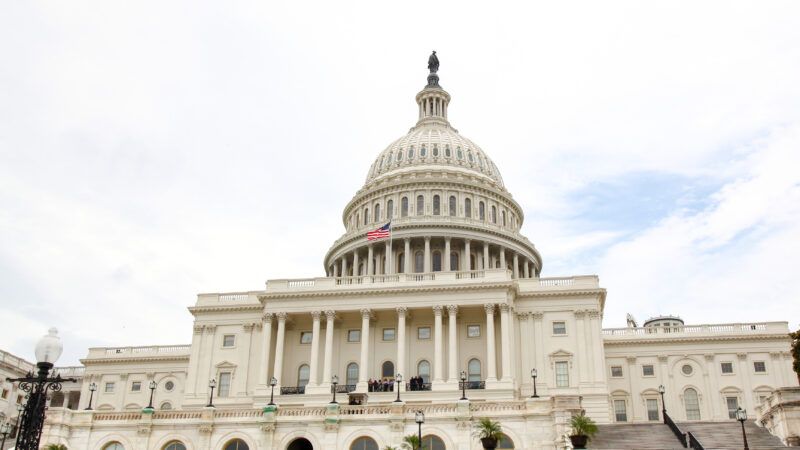How Congress Could Cement State-Level Progress on Occupational Licensing Reform
The Restoring Board Immunity Act would give states yet another reason to rein in overzealous licensing authorities.

Occupational licensing is supposed to protect consumers from harm, but often it seems to do little more than protect licenseholders from would-be competitors.
That was certainly the case in North Carolina, where a licensing board created to regulate dentistry tried to protect dentists from losing business to teeth-whitening services. After the Federal Trade Commission got involved, the U.S. Supreme Court eventually ruled in 2015 that the North Carolina State Board of Dental Examiners had overstepped its authority.
That ruling, which threatened state-level licensing boards with the loss of antitrust immunity if they engaged in blatantly anti-competitive behavior, helped spur some state-level reforms in recent years. But there are still plenty of boards that enforce unnecessary rules regulating everything from hair-braiding to the dispensing of dietary advice. If there is no threat to public safety, is there a need for licensing at all?
Not so, says Rep. Darrell Issa (R–Calif), who reintroduced a bill that provides a pathway for states to reform licensing boards in order to be shielded from the threat of federal antitrust lawsuits.
"While some licenses ensure important safety standards," Issa said in a press release, "far too many create unnecessary burdens for jobs no more risky than braiding hair, pet-sitting, or flower-arranging."
Specifically, the Restoring Board Immunity Act would provide two pathways for states to follow. They could create new accountability measures for licensing boards within the state government—effectively giving executive branch officials a positive obligation to review and approve the behavior of boards that are usually allowed to do as they please. Or they can pass laws that would force courts to apply a higher degree of legal scrutiny to licensing boards' actions, in the event that a board is hauled in front of a judge for approving anti-competitive rules.
Both are meant to prevent the sort of self-dealing that occurred in the North Carolina dental board case—and which is all too common for boards that are often controlled by the very businesses they are supposed to regulate.
All that red tape isn't doing much to protect consumers, but it does seem to have an impact on employment. One in every four American jobs now requires a government-issued license, according to a recent report from the Council of State Governments. Morris Kleiner, a labor economist at the University of Minnesota, estimates that easing licensing rules could create 2 million more jobs nationally. And licensing also reduces economic mobility by making it harder for workers to move from state to state, since that often requires going through an expensive and time-consuming process to get licensed again.
At a time when lawmakers are particularly concerned about the unemployment rate and pushing Americans to get back to work in the wake of the COVID-19 pandemic, licensing laws remain a significant barrier, as Reason's Brian Doherty noted earlier this week.
Occupational licensing reform has enjoyed bipartisan love in recent years.
The Obama administration published a landmark report calling for states to reform licensing rules that make it harder for workers and entrepreneurs. The Trump administration sought to undo many other Obama-era policies, but in this case it nudged states to ease licensing rules, particularly for military spouses. More recently, Republican leaders have recognized the importance of licensing reforms as a part of the GOP's attempt to reorient itself toward the working class. President Joe Biden has signaled his desire to "put an end to unnecessary occupational licensing requirements." Both blue and red states have enacted changes to remove red tape for a wide range of workers, and a few states have even passed laws to accept out-of-state licenses without requiring retraining.
These are all steps in the right direction. Now Congress advance reform yet farther.


Show Comments (9)